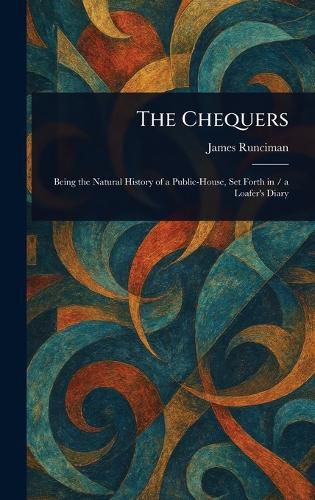Readings Newsletter
Become a Readings Member to make your shopping experience even easier.
Sign in or sign up for free!
You’re not far away from qualifying for FREE standard shipping within Australia
You’ve qualified for FREE standard shipping within Australia
The cart is loading…






This title is printed to order. This book may have been self-published. If so, we cannot guarantee the quality of the content. In the main most books will have gone through the editing process however some may not. We therefore suggest that you be aware of this before ordering this book. If in doubt check either the author or publisher’s details as we are unable to accept any returns unless they are faulty. Please contact us if you have any questions.
"The Chequers: Being the Natural History of a Public-House, Set Forth in a Loafer's Diary" by James Runciman offers a fascinating glimpse into 19th-century England. Through the intimate lens of a loafer's diary, this work explores the social conditions of the era, vividly depicting life within and around a typical public house. More than just a tavern, "The Chequers" serves as a microcosm of English society, reflecting the daily lives, struggles, and interactions of its diverse patrons.
Runciman's narrative provides a unique perspective on a pivotal period in history, capturing the atmosphere and essence of a bygone era. With meticulous detail, he paints a portrait of a community bound together by shared experiences and the common ground of "The Chequers." Readers interested in historical fiction, literary works, or the sociology of urban life will find this a compelling and insightful read. This edition brings a meticulously prepared republication of the original text.
This work has been selected by scholars as being culturally important, and is part of the knowledge base of civilization as we know it.
This work is in the public domain in the United States of America, and possibly other nations. Within the United States, you may freely copy and distribute this work, as no entity (individual or corporate) has a copyright on the body of the work.
Scholars believe, and we concur, that this work is important enough to be preserved, reproduced, and made generally available to the public. We appreciate your support of the preservation process, and thank you for being an important part of keeping this knowledge alive and relevant.
$9.00 standard shipping within Australia
FREE standard shipping within Australia for orders over $100.00
Express & International shipping calculated at checkout
This title is printed to order. This book may have been self-published. If so, we cannot guarantee the quality of the content. In the main most books will have gone through the editing process however some may not. We therefore suggest that you be aware of this before ordering this book. If in doubt check either the author or publisher’s details as we are unable to accept any returns unless they are faulty. Please contact us if you have any questions.
"The Chequers: Being the Natural History of a Public-House, Set Forth in a Loafer's Diary" by James Runciman offers a fascinating glimpse into 19th-century England. Through the intimate lens of a loafer's diary, this work explores the social conditions of the era, vividly depicting life within and around a typical public house. More than just a tavern, "The Chequers" serves as a microcosm of English society, reflecting the daily lives, struggles, and interactions of its diverse patrons.
Runciman's narrative provides a unique perspective on a pivotal period in history, capturing the atmosphere and essence of a bygone era. With meticulous detail, he paints a portrait of a community bound together by shared experiences and the common ground of "The Chequers." Readers interested in historical fiction, literary works, or the sociology of urban life will find this a compelling and insightful read. This edition brings a meticulously prepared republication of the original text.
This work has been selected by scholars as being culturally important, and is part of the knowledge base of civilization as we know it.
This work is in the public domain in the United States of America, and possibly other nations. Within the United States, you may freely copy and distribute this work, as no entity (individual or corporate) has a copyright on the body of the work.
Scholars believe, and we concur, that this work is important enough to be preserved, reproduced, and made generally available to the public. We appreciate your support of the preservation process, and thank you for being an important part of keeping this knowledge alive and relevant.